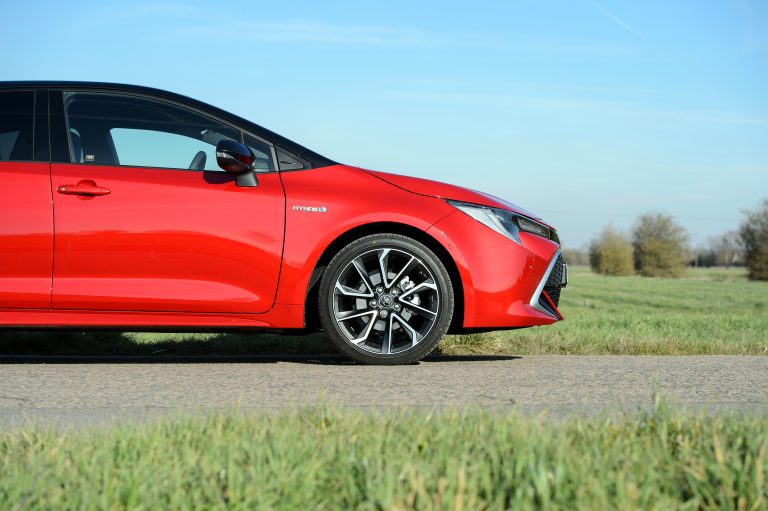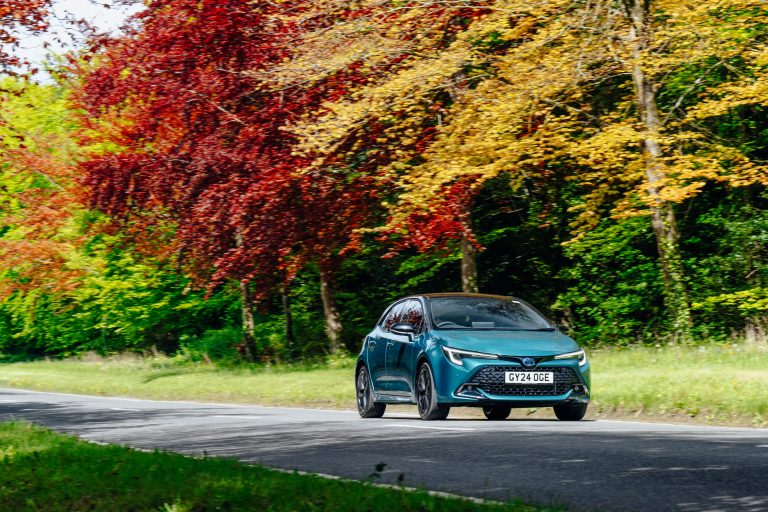Unprecedented UK Growth And Sales Success For Toyota And Lexus Self-Charging Hybrids
One year on from the launch of the Government’s Road to Zero transport strategy, Toyota and Lexus are helping power a transformation in cleaner mobility in the UK with record, accelerating growth in self-charging hybrid car sales.
Toyota (GB) PLC, the business representing both brands in the UK, is witnessing unprecedented demand from both private and business customers who are keen to embrace the real-world benefits of hybrid power. Sales volumes and growth during the first half of this year have continued to reach new heights.
On the back of a 76 per cent increase in new hybrid vehicle sales during the past two years, Toyota figures are already up a further 10 per cent year-on-year so far in 2019. The order bank currently stands at around 23,000 vehicles – a level never witnessed before, with demand outpacing supply.
The statistics are just as exceptional for Lexus, with more than 99 per cent of its new car sales being hybrids. This year the luxury brand is on course for record-breaking results, looking to a rise in its total volume of at least 22 per cent compared to 2018’s performance. Orders have soared to their highest level yet, with customer demand having exceeded supply for the past two years. Sales so far this year are up by 18.9 per cent on last year, with the order bank standing at 3,535 vehicles – a rise of 153 per cent.
There are multiple reasons for this astonishing success. Toyota has more experience in self-charging hybrid technology than any other manufacturer, and has made constant improvements since it debuted the concept more than 20 years ago with the introduction of the original Prius. The result has been ever more impressive gains in fuel economy and low emissions, at the same as air quality, pollution and sustainability have become critical concerns for society and the subject of increasingly stringent legislation.
At the same time, Toyota has made the benefits of hybrid available to an increasingly wide market, adapting it for use in all kinds of vehicles, from the Yaris supermini to the RAV4 SUV. Equally, Lexus has proved the inherent quality and flexibility of the technology, applying it to models as diverse as the new UX compact SUV and flagship LC 500h coupe.
This demonstrates how Toyota has engineered its hybrid models not just for environmental performance, but also for a more engaging driving experience. The technology has also proven its inherent strength and reliability, with millions of miles driven by Toyota and Lexus hybrids all around the world.
Paul Van der Burgh, Toyota GB President and Managing Director, said: “The recent headlines about market setbacks for alternative fuel vehicles in the UK do not give the full picture. Toyota and Lexus hybrids are prospering as never before, as customers recognise and appreciate the authentic benefits they offer when it comes to fuel economy, low emissions and a powertrain choice that is eminently practical and requires no compromise in terms of everyday convenience, reliability and genuinely enjoyable driving quality.
“We have succeeded in making our hybrid technology a mainstream choice and its fast-rising popularity will make a significant contribution to achieving longer-term environmental targets.”
Just as the UK Government has set out its roadmap for action in the Road to Zero, Toyota worldwide is making strong progress towards reaching the ambitious targets of its own Environmental Challenge 2050. This includes a plan to reduce CO2 emissions from its vehicles by 90 per cent by 2050, compared to 2010 levels – a challenge in which its hybrid technology strengths are an enabler for developing even cleaner and more efficient vehicle power systems.
ENDS










